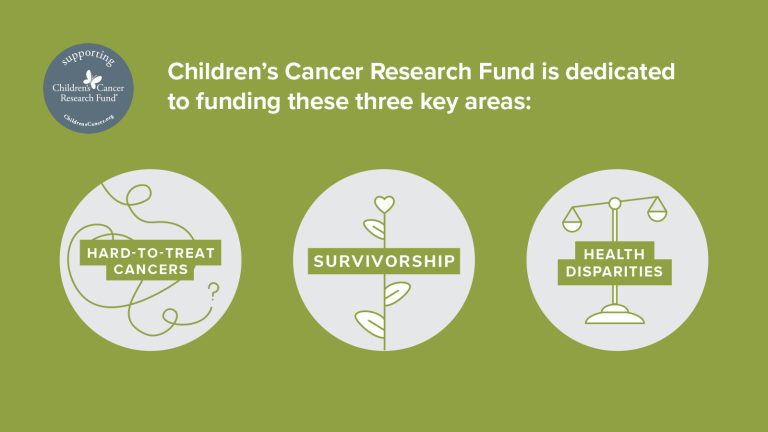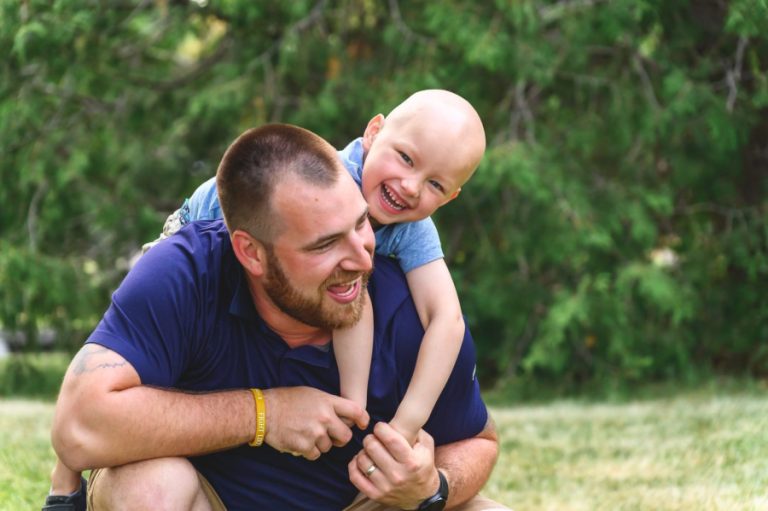If you feel compelled to help a family experiencing cancer, know that your thoughtfulness could be a huge stress relief that’s remembered for a lifetime.
Not sure what to say or do? You’re not alone. Here are 5 ways to support a family experiencing a challenging medical crisis so you’ll no longer have to rely on saying, “If there’s anything I can do, let me know.”
1. Bring a meal.
Making a main meal is a huge time-saver for a family. If the family has a large community circle, they may get several of the same meals in any given week. Try making your own favorite dish to help mix it up while helping the family eat healthily and stay nourished. Remember to ask about food allergies or special diets. You can even set up a meal calendar for a family so they know when and who is bringing them a meal.
“After getting home from school, it was so nice to be able grab the meal from the cooler and not have to think about it. I could focus on what was most important to me at the time.”Alli, sister of a childhood cancer patient
Where to start:
Text or call the family member and tell them what you have in mind.
Casseroles, crockpot meals, soups or stews are a great first meal to bring. Before dropping off a meal, let the family know you’re coming so they can tell you best time to leave it. Ideally, make a meal that can be frozen, package it in containers that you don’t need back (so the family doesn’t have to worry about returning them) and make sure to include instructions.
Bonus
Buy the family a cooler to keep outside their door. If they’re given a lot of meals and are in and out of the house, you’ve provided a consistent place to put the food.
2. Run errands.
Picking up and doing laundry, returning library books, picking up prescriptions, bringing mail to the post off or grabbing the mail from the mailbox, stocking up the fridge, ordering lunch: these errands are great ways to help a family save time and clear their mind. Offer to do a consistent, routine errand to help on a regular basis. This will help the family manage tasks in a simplified, effective way.
Where to start:
Ask someone close to the family what the family’s immediate needs are. Once they give you an idea, let the family know you’re willing to help them and be specific about what you plan to do for them.
3. Help with childcare.
Offer to drive siblings to school, sports or other activities, babysit siblings on days when there may be frequent appointments or hospital stays or, if the kids are older, offer to take them somewhere fun like the mall or to a movie. Creating a routine for siblings helps them cope with the new family dynamic.
Where to start:
Think about your daily routine and schedule crossover with the family. If possible, decide to do something consistent like drive a child to and from school.
Otherwise, ask the family if there’s a day you can take to help with childcare.
4 . Send mail.
Mail is a great way to let families know you’re thinking of them, and it helps break up the long days and nights when the family is either inpatient or when they’re stuck at home.
I loved getting mail! It was always exciting, especially during weeks when I hadn’t left home or the hospital for days and was bored out of my mind…it was always so much fun to open.Sarah, childhood cancer survivor
Where to start:
Consider sending mail to the sibling or family member who isn’t getting medical care. Humor is welcome, so go ahead and send that funny card. Here are some ideas:
Decorate the envelope, put together a care package, include something unique to you like your favorite joke, a photo of your pet or family, your child’s drawing, your favorite prayer card or enlist your friends and family to send cards as well.
5. Offer to visit and bring a treat.
At the hospital, a family can only watch movies, TV shows or sit on Facebook for so long before they start to long for personal interaction. Visiting, especially when the family has a long road ahead of them, helps eliminate monotony and allows them to check out of the cancer world, at least for a little bit. Bringing them a treat, like food from a favorite restaurant, coffee or a snack, gives the family something to look forward to in addition to your visit.
Where to start:
Keep tabs on social media to see when a family is in the hospital. Send a message asking if they’re up for a visit. Don’t be afraid of rejection. Remember, the family is basing their answer off of how their child is feeling, what the treatment schedule looks like and whether or not they feel ready to interact. If they are up for a visit, ask if they’d like a treat and ask what sounds good. Oftentimes, treatment can change taste or cause nausea.
Some other ideas: Bring a new magazine, news and stories. Sometimes families feel left out of everyday life.
Need more idea on how to support a family who’s received devastating cancer news?
Start a fundraiser
Every $1 donated helps researchers secure $18 in additional funding to make groundbreaking discoveries. No fundraising idea is too big or too small to make a lasting impact in the life of a child with cancer.




